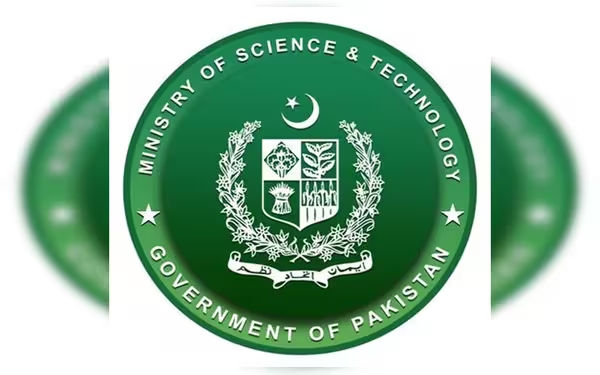Friday, October 18, 2024 03:27 AM
Proposed Merger of Science and Technology Departments in Pakistan
- Sub-committee proposes merger of low-performing science institutions.
- Pakistan Halal Authority's status under review for better oversight.
- Leadership crisis hampers performance of nine key departments.
 Image Credits: gnnhd
Image Credits: gnnhdA proposal to merge low-performing institutions under Pakistan's Ministry of Science and Technology aims to enhance efficiency and accountability.
In a significant move aimed at enhancing efficiency within the government, a sub-committee of the Federal Government's High-Power Committee on Right Sizing has put forth a proposal to merge several low-performing institutions under the Ministry of Science and Technology. This initiative is part of a broader strategy to streamline operations and ensure that taxpayer money is utilized effectively.
The institutions identified for potential merger include the Pakistan Council for Science and Technology (PCST), the Council for Works and Housing Research (CWHR), and the Pakistan Council for Renewable Energy Technologies (PCRET). The proposal suggests that these entities could either merge with one another or be integrated into other departments. Additionally, there is a recommendation to transfer the Ministry of Education's responsibilities to universities that operate under the Ministry of Science and Technology.
If the Right Sizing Committee endorses this proposal, it will be forwarded to the Federal Cabinet for a final decision. The sub-committee's notification, issued in June, has raised critical questions about the effectiveness of various departments within the Ministry of Science and Technology. Concerns have been raised regarding their justification for existence, revenue generation, and overall self-reliance.
One of the contentious points in the discussions is the status of the Pakistan Halal Authority (PHA), which was established as a subsidiary body in 2016. While the Ministry of Science and Technology has expressed a desire to retain control over the PHA, the sub-committee members have suggested that it should fall under the administrative oversight of the Cabinet Division. This recommendation stems from observations that the PHA's functions overlap with those of other departments, such as the Pakistan Standards and Quality Control Authority (PSQCA) and the Pakistan Council of Scientific and Industrial Research (PCSIR).
Moreover, the sub-committee is expected to recommend the merger of the PHA with the PSQCA before considering a transfer to another ministry. This move is seen as a necessary step to eliminate redundancy and improve operational efficiency.
Despite the PCSIR's annual budget running into billions of rupees, the sub-committee has noted that the revenue generated by the organization is almost negligible. This alarming situation has prompted officials within the Ministry of Science and Technology to voice their concerns regarding the recommendations of the sub-committee. They argue that nine institutions under the ministry are currently operating without a clear leadership structure, which has contributed to their poor performance.
Among the departments facing this leadership crisis are the PCST, PSQCA, CWHR, National Meteorological Institute of Pakistan, Pakistan Science Foundation, National Institute of Electronics, National Institute of Oceanography, COMSATS University, and the Pakistan National Accreditation Council. The absence of effective leadership is seen as a significant barrier to improving the performance of these institutions.
The final recommendations from the Right Sizing Committee could lead to substantial changes in the structure and operations of the Ministry of Science and Technology. As the government seeks to optimize its resources and enhance the effectiveness of its institutions, it remains to be seen how these proposed mergers will unfold and what impact they will have on the scientific and technological landscape of Pakistan.
The proposed mergers and restructuring within the Ministry of Science and Technology highlight the government's commitment to improving efficiency and accountability. As these discussions progress, it is crucial for stakeholders to remain engaged and ensure that the ultimate decisions made will benefit the scientific community and the nation as a whole. The future of these institutions hangs in the balance, and their ability to adapt to these changes will be vital for their success.













